Author and educator John Marsden says toxic parenting has reached crisis point
Forget quality time and never saying no, parents are behind the crisis of toxic behaviour in children and need to subjecting them to “emotional abuse”, argues Australian educator and best-selling author John Marsden.
Parenting
Don't miss out on the headlines from Parenting. Followed categories will be added to My News.
A DECADE-LONG “epidemic of damaging parenting” is turning Australia’s teenagers into cruel, greedy, selfish and mentally ill addicts – and the situation has reached crisis point.
Parents need to take a good hard look at themselves and the “emotional abuse” they’re inflicting on their children.
They need to start working with teachers and schools to shape a resilient, adaptable and creative generation optimistic about taking on the joys and challenges of adulthood, and who believe the world can be changed for the better.
Author, educator and stepfather John Marsden knows the “strong views” expressed “directly and forcefully” in The Art of Growing Up – his manifesto on parenting, education and preparing children and teenagers for the future – are controversial and likely to attract criticism.
He couldn’t care less.
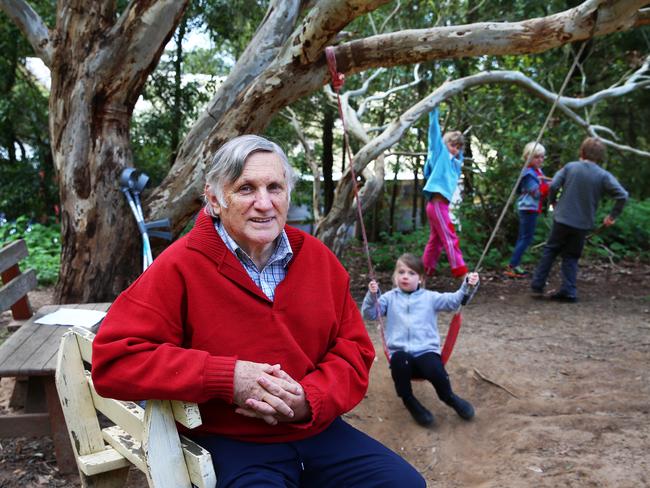
“Everywhere I look I see awful mismanagement of young people and the results are toxic and the consequences are dire, and we see the damage that causes in schools and lots of other areas of life, too,’’ says Marsden, 68.
“Some people won’t like it for sure. It’s such a powerful topic. It goes right to the heart of people’s lives; it goes right to their souls. Parenting is such a unique element of life and people have everything invested in it, whether they know it or not. So it is difficult territory.
“One of the problems we’ve seen in the last decade has been that people are afraid to speak directly about parents and how they need to manage their responsibilities.
“So there’s a lot of pussy-footing around, speaking in hushed tones and giving little hints that parents could maybe do things a little bit differently,’’ he says.
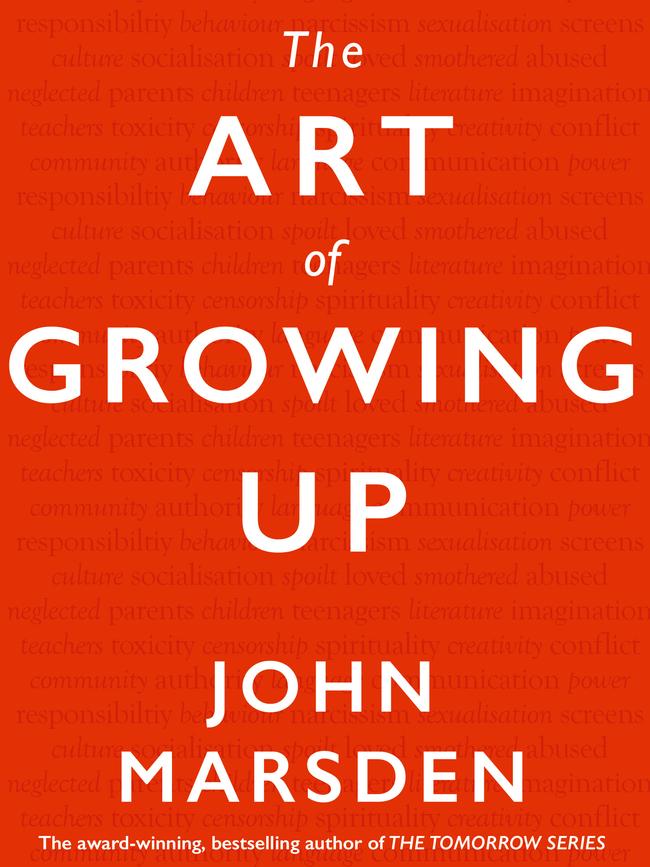
Brendan, the five-year-old who set his school on fire and threatened to kill his classmates, had a father who started every meeting with teachers by shouting “Brendan is awesome!”
Phillipe, the narcissist who stole, lied and hurt other children, was constantly told by his parents how special he was and allowed to do as he wished.
Savannah, the bright 14-year-old, whose parents quashed their own grave misgivings to allow her to change schools mid-year simply because she wanted a better friendship group to choose from.
Helen, the 13-year-old desperate to be noticed by her female teachers and who sought sexual contact with boys, because her dad was absent and mum always volunteered long hours at a local hospital.
Marsden’s book overflows with stories of young people he’s worked with – or tried to – in more than 40 years as a teacher, principal and, most recently, founder of independent schools, Candlebark in 2006 and Alice Miller in 2016, in Victoria; each of whom he believes has been failed by their parents in some critical way.
He’s adamant that parents are the single most important influence over the kind of adults young people become. In the eternal, “complex” nature v nurture debate, he’s firmly in the latter’s camp.
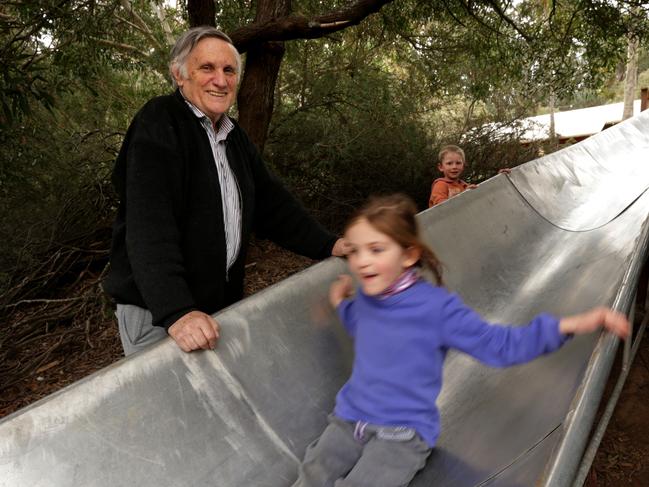
“If a child’s life is built on good, healthy, strong foundations they can manage any of life’s difficulties that come along and enjoy the highlights, but if your life is built upon weak, feeble, rocky foundations, everything will collapse given the slightest pressure.’’
An award-winning, internationally best-selling author of young adult fiction, including the massively popular Tomorrow When the War Began, Marsden has previously stated his own troubled adolescence in a dysfunctional family enables him to connect well with young people. Similarly, he says his own experience as a stepfather of six sons – Fletcher, 25, Oliver, 21, Wilson, 19, twins Charlie and Harry, 17, and Alexander, 15 – with wife of nine years, Kris, also a teacher, and as an educator, gives him a unique insight into child-rearing.
Marsden says too much modern parenting is driven by fear.
“Fear of children walking to school on their own, fear of them going into a playground on their own, fear of children being hurt physically – falling out of a tree or off the monkey bars, fear that parents will be judged by others, fear of emotionally damaging your children so they grow up blaming you.
“There’s tremendous fear among many, many parents about things that aren’t really rational but that’s understandable because there’s a lot of emotion involved. But it’s important people step back and try to be thoughtful and try to understand where the fear comes from.’’
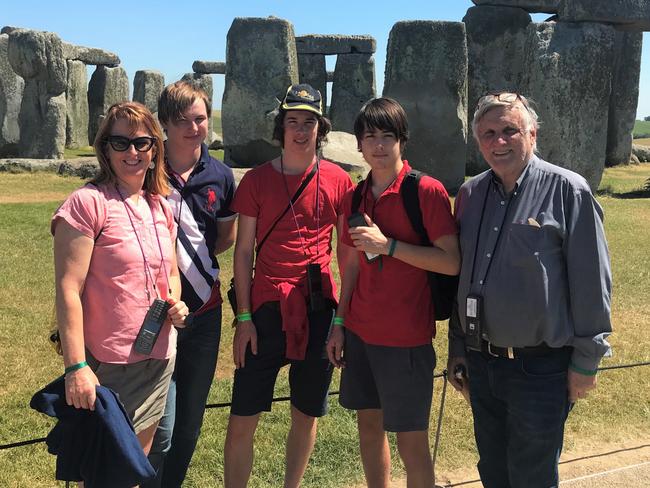
Marsden says parents need to address their own individual mental health issues, to be able to respond rationally to their children’s issues. He argues the mental health problems of both parents and students – who, especially, are caught up in a “pandemic” of anxiety and panic – is the biggest problem facing modern schools.
Marsden urges parents to reject the simplistic idealisation of children as cute and innocent, or demonisation of adolescents as sullen, selfish and lazy – because children can be all things at all ages. And, he says, don’t strive to produce a mini-me; allow the child to express their own personalities and form their own values and beliefs. Give them access to plenty of information – including about sex, drugs, politics, power, religion and technology – so they can see and understand how the world really works.
He says every child and young person needs to hear and accept the word “no” and clear and healthy boundaries for age-appropriate behaviour. Independence should be fostered by teaching the child to take on responsibilities around the home, like cooking, cleaning and washing.
Vitally, Marsden says families need to spend a lot more time together. He describes the concept of quality time as the “one of the greatest con jobs ever perpetrated in the recent history of Western civilisation” and writes that, in our too often over-scheduled lifestyles, “quantity time is the only quality time”.
“When I say I get along with my stepkids, I don’t say that lightly because I worked bloody hard to achieve that. I did that by spending infinite numbers of hours with them and a lot of that time was doing really boring stuff – I didn’t really get into the LEGO but playing UNO, infinite numbers of games of Monopoly, backyard and street cricket, and even watching crappy television,’’ says Marsden, from his office at Candlebark, near Romsey, about 60km north of Melbourne, Victoria.
“Just share the time to be in each other’s company and to make occasional mundane remarks to each other – that’s how relationships grow and prosper. It doesn’t have to be the Disneyland Dad syndrome, where you take them off to an amusement park for a few hours and then feel you’ve done your duty and can take a month off.’’
“It’s important to acknowledge that benign neglect is often an appropriate approach for parents and teachers to adopt. Paediatrician Donald Winnicott’s notion of the ‘good enough mother’ can be extended to all interactions with children. If we provide a reasonably safe place in which the child can play, and we answer his or her questions honestly and thoughtfully, then we won’t be doing too much wrong.
“We don’t need to be frenetic in the way we parent and teach.’’
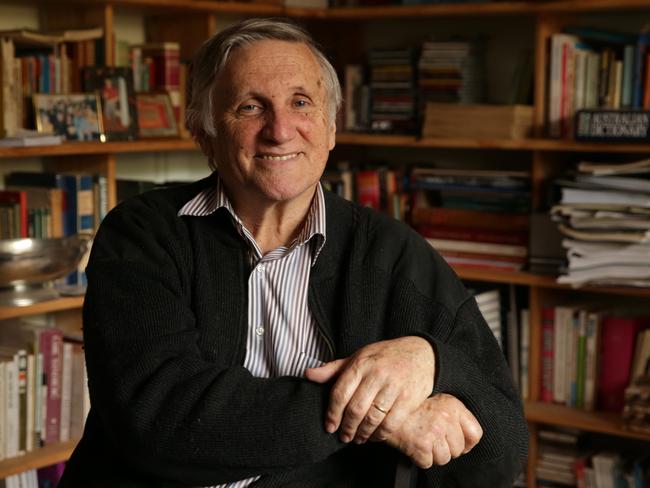
Overall, Marsden is optimistic changes can be made at home and at school – “God, yes, otherwise I wouldn’t have written the book!” He still loves teaching and running his schools, and has no plans to retire any time soon.
Marsden says our biggest challenge as a society is to stop giving adulthood such a bad rap and to give young people a realistic understanding of the life before them – the good and the bad. It’s time to drop the endless “meaningless” positive slogans and the stereotypical parental mantra of simply wanting a child to be happy.
“To have a realistic understanding of life you need to understand solace; you need to understand emotions and feelings and be able to communicate; you need to be able to recognise the colour of truth is grey, to quote French writer Andre Gide, and so much more beside that.’’
As his final pages beseech, as parents, we also have “to convince children that change for the better is possible and achievable, that their actions can make a difference, and that defeating the forces of ignorance and self-interest is essential’’.
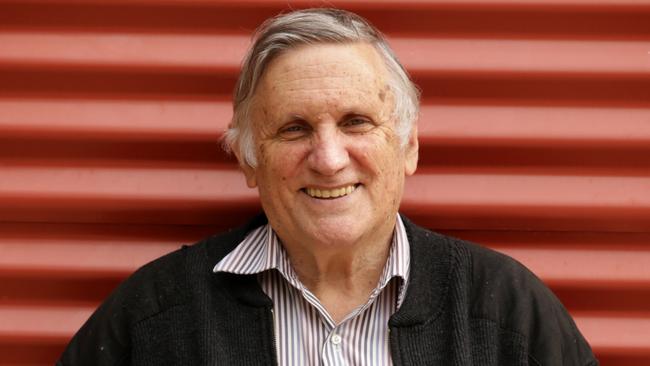
JOHN MARSDEN’S TIPS FOR PARENTS
1. Give children space. Back off. Let them roam. Let them be bored. Don't over-plan their lives. Cut way back on the after-school activities programs.
2. Keep away from all those ghastly, soulless, sterile playgrounds. Keep away from shopping malls. Look for real places. Wild places.
3. Be an adult. Say no to your children at least once a day. If the role of Adult in your family is vacant, then one of your children will fill it. And it won't be pretty.
4. Don't take up all the space. If you are dominating, loud, forceful, your children are highly likely to become passive, lacking spirit and personality … and/or sullen.
5. Believe about 40 per cent of the dramatic stories your children tell you of the injustices, corruption and satanic practices happening at school.
6. Teach them empathy. For example, after their jubilant victory celebrations when they win a sporting match, remind them that their jubilation was only possible because someone else – the losers – have been made to feel awful.
7. Help them develop language skills. Don't finish their sentences for them. Don't correct them when they mispronounce a word – they'll work it out sooner or later. Ask them open-ended questions, that need a detailed answer, not Yes/No questions.
8. Make sure they have regular jobs/duties at home and that those jobs are done to a consistently high standard.
9. Don't whinge endlessly about the miseries of your adult life. A lot of children now are fearful about growing up because their parents paint such a grim picture of the awfulness ahead.
10. Teach them to be very wary of people who Absolutely Know the Absolute Truth about Absolutely Everything! The colour of truth is always grey. Extreme positions are for the ignorant. Every creature, every person and every situation is complex. The universe is a wonderful mystery.
John Marsden is at the Byron Writers Festival, August 2-4, and the Brisbane Writers Festival, September 4-8. The Art of Growing Up, John Marsden, Macmillan, $35.
Originally published as Author and educator John Marsden says toxic parenting has reached crisis point


